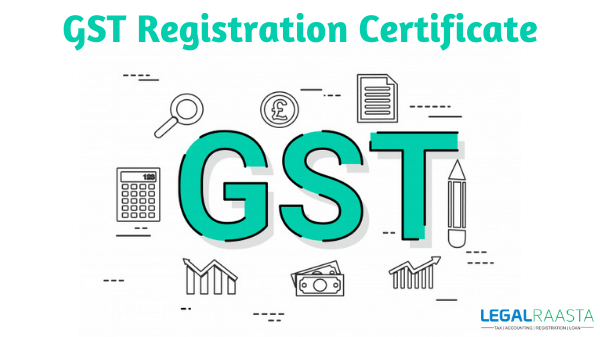Singapore GST Registration: What You Required to Know Before Using
Singapore GST Registration: What You Required to Know Before Using
Blog Article
Maximizing Tax Efficiency: Expert Tips on Browsing the GST Enrollment Puzzle for Local Business
Navigating the intricate landscape of Goods and Provider Tax Obligation (GST) enrollment can be a labyrinthine job for small companies intending to maximize their tax efficiency. Recognizing the eligibility requirements, careful paperwork demands, tactical timing considerations, and experienced enrollment process ideas can dramatically influence a business's financial standing. Conformity with GST regulations is paramount, and sticking to best practices can simplify operations and prevent prospective mistakes. In this conversation, we will discover skilled insights and workable advice that can empower tiny companies to browse the GST registration labyrinth efficiently and enhance their tax obligation efficiency.
Eligibility Standards
Eligibility demands for Local business GST Registration include details criteria that companies have to meet to follow tax laws. To get approved for GST registration, a service has to have a yearly turnover exceeding the threshold established by the tax obligation authorities, which varies by nation. In addition, businesses associated with inter-state supply of solutions or items, or those marketing goods online, may be called for to sign up for GST, irrespective of their turnover. It is necessary for businesses to accurately identify their eligibility based on these turnover limits to stay clear of penalties for non-compliance. Singapore GST Registration.

Documentation Needs
To efficiently complete the process of GST registration, small companies need to ensure they have all required documents in order. The called for paperwork normally consists of proof of organization registration or identity, address and unification proofs of the service owner, photographs, checking account information, and proof of the principal workplace. In addition, services need to provide details of their company tasks, including the goods or services provided. It is crucial to ensure that all papers are precise, up to day, and in the specified layout to protect against delays or denials during the registration process.
Keeping all needed documents arranged and conveniently accessible can simplify the enrollment procedure and aid businesses comply with the requirements effectively. Precise attention to detail and adherence to the documentation guidelines are important for a successful GST registration process for tiny companies.
Timing Factors To Consider
Thinking about the important documentation needs have been diligently attended to, the following important read what he said aspect for local business embarking on the GST enrollment procedure is the tactical monitoring of timing considerations. Timing plays a crucial duty in GST registration, impacting not only compliance yet also monetary aspects of the company. Local business require to carefully plan the timing of their GST enrollment to maximize advantages and minimize prospective threats.

Furthermore, services should align the timing of their GST registration with their operational preparedness. Sufficient preparation, such as upgrading audit systems and training staff, is vital to effortlessly integrate GST demands into daily operations. By this article purposefully taking care of timing factors to consider, small companies can browse the GST enrollment procedure successfully and maximize their tax obligation performance.
Enrollment Refine Tips
Successfully browsing the GST enrollment process needs little organizations to carry out positive and strategic registration process suggestions. This includes organization enrollment papers, proof of address, bank declarations, and recognition proofs of the company proprietors.
In addition, recognizing the thresholds and needs for GST registration based on the specific state or area where the business runs is vital. Some states have different turnover thresholds that cause necessary enrollment, so being notified about these limits can aid businesses plan in advance.
Another valuable suggestion is to take into consideration looking for professional support from accounting professionals or tax obligation professionals who focus on GST enrollment. Their expertise can improve the process, lower errors, and guarantee conformity with all laws.
Compliance Finest Practices
Browsing the GST registration process efficiently necessitates not only calculated registration procedure pointers but also attentive adherence to conformity ideal methods to make sure continuous regulative alignment. Local business should prioritize conformity to stay clear of charges and preserve a read the full info here good standing with tax obligation authorities. One crucial ideal technique is to maintain precise and comprehensive documents of all deals. This includes billings, invoices, and other financial documents that might be required for tax audits or conformity checks. In addition, remaining informed about any type of updates or adjustments to GST regulations is vital. If needed to ensure they are meeting all requirements, small business proprietors must consistently evaluate government standards and seek specialist suggestions. Singapore GST Registration. It is likewise recommended to submit GST returns in a timely manner to avoid late costs and penalties. By incorporating these compliance best practices into their procedures, small companies can browse the complexities of GST enrollment with self-confidence and efficiency.
Conclusion
Finally, local business can navigate the GST registration maze by ensuring they meet eligibility criteria, gather required paperwork, think about timing implications, follow registration process tips, and abide by compliance best practices. By taking full advantage of tax effectiveness with appropriate GST registration, services can boost their economic management and operations.
Navigating the elaborate landscape of Product and Solutions Tax Obligation (GST) enrollment can be a labyrinthine job for small companies intending to optimize their tax obligation effectiveness.Qualification demands for Small Organization GST Registration encompass particular requirements that services must satisfy to conform with tax obligation guidelines. The needed paperwork normally consists of evidence of service enrollment or identity, unification and address proofs of the company proprietor, photos, bank account information, and evidence of the primary place of organization. In addition, services need to provide information of their service activities, consisting of the products or solutions supplied.Successfully browsing the GST registration procedure calls for little businesses to carry out aggressive and calculated enrollment procedure pointers.
Report this page